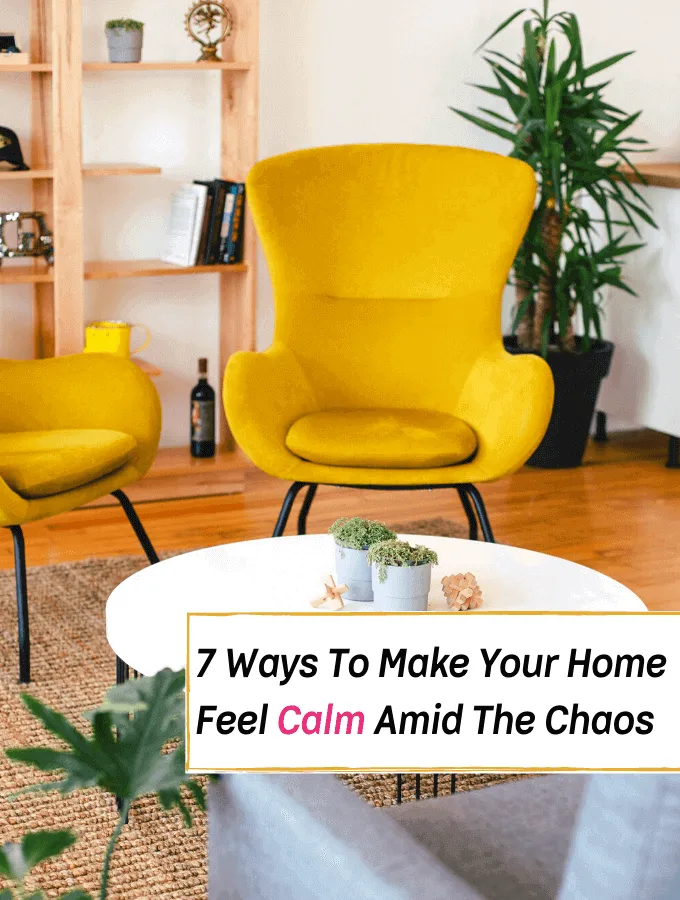
Home is where you’re supposed to feel most at peace and your home should feel calm when you’re trying to relax!
But sadly, many people feel so stressed out at home that they try to find any excuse to leave.
Like it or not, you probably spend more time in your home than anywhere else, so it’s extremely important to make your home a calm and welcoming environment, but how do you actually achieve that?
The world is a wild and unpredictable place, and you deserve some respite from the stresses of day-to-day life.
If you want to reduce your stress and feel a little more at home in your house or apartment, then take a look at these seven key ways to make your home feel calm amid the chaos.
Similar Topics:
See Also:
Are you curious to see what it takes to create a relaxing home? Check out these 7 Brilliant Ways to Create a Really Relaxing Home!
7 Ways To Make Your Home Feel Calm Amid The Chaos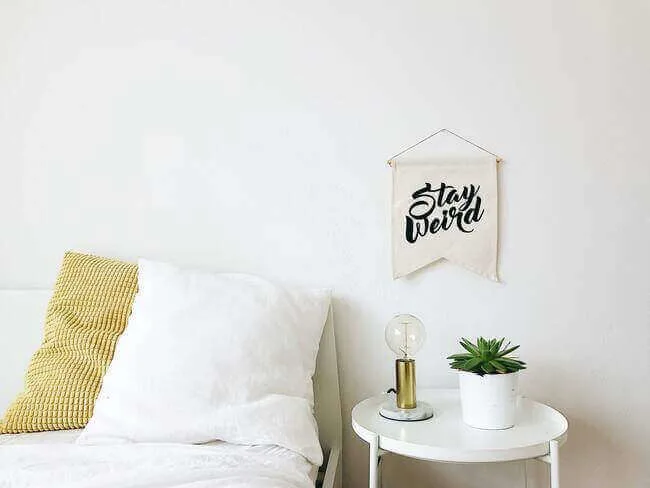
1. Reduce Noise.
If your home is louder than the first night of the county fair, then how can you really expect to relax and calm down?
High levels of noise distract you and always keep your mind engaged, making it very difficult to sit back and take a breather.
In fact, according to a study by a couple of esteemed health professionals at ncbi.nlm.nih.gov, a noisy environment will chronically put your body into its natural fight or flight mode, considerably heightening your stress levels.
While you can’t silence every noise, you do have some influence on the noise levels in your home.
Your TV shouldn’t be left on when you’re not watching it, and shouting shouldn’t be the preferred method of communication. Outside noises can be considerably dampened by shutting windows and doors or installing soundproof curtains.
All in all, reducing the noise in your home by just a small amount can help give you the moment of respite that you need.
2. Dim the Lights.
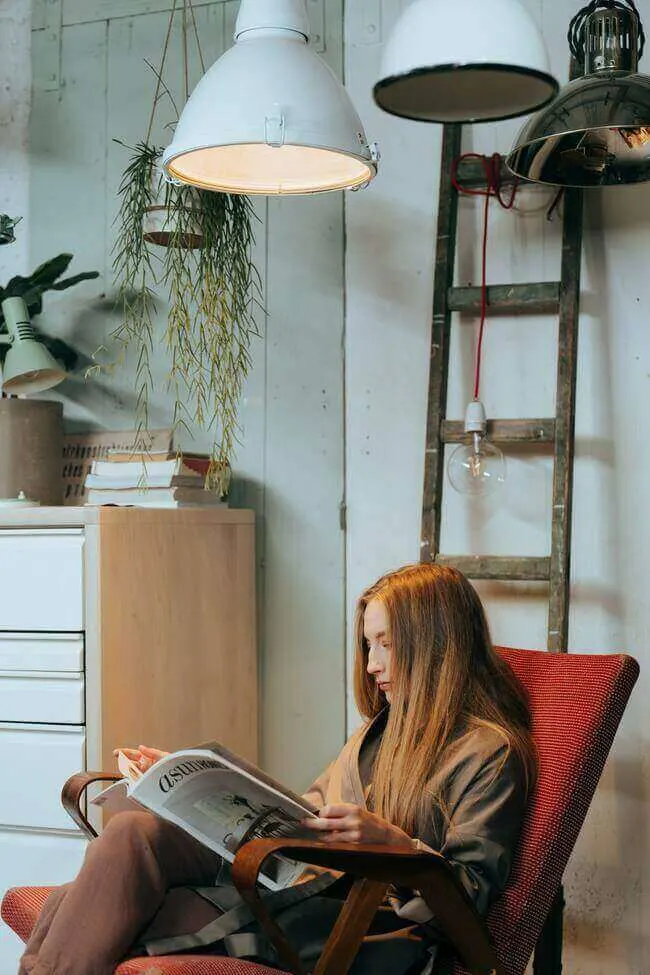
Bright lights can keep you alert when you need it, but your home shouldn’t feel like an interrogation room all day!
At psychologytoday.com, Dr. Mithu Storoni explains that constant exposure to bright lights will mess with your sleep hormones and increase stress.
At the end of the day, humans are animals, and we aren’t built for constant access to artificial lights.
Your body depends on the natural sunrise and sunset cycle to produce the right quantities of extremely important hormones. If your mind feels like it’s being exposed to constant daylight, then you’ll always be primed to feel as if you’re supposed to be doing something active.
When you’re home, you just want to relax, and dimming your lights or turning them off in the evening will help you calm down in the way that nature has always intended.
3. Step Away From Screens.
It seems as though we can’t get enough of our screens these days but according to this study at activehealth.sg, it is recommended that people try to limit their social media use to 30 minutes per day to relieve stress.
Social media is often unproductive and can seriously stress you out. Even if you succeed in limiting your social media, you should still try to limit your time in front of other screens.
Mobile apps, games, televisions, and computers all emit harmful blue light that will affect your sleep cycle, strain your eyes, and make it hard to relax.
Instead of chasing the dopamine rush that your favorite game, show, or website provides, why not simply take a seat and chill out?
Your mind needs time to rest, so if you want a calmer life, then you have to give it a break.
Your mind needs time to rest, so if you want a calmer life, then you have to give it a break.
Similar: 8 Best Ways to Get Really Great Work Done From Home
4. Declutter.
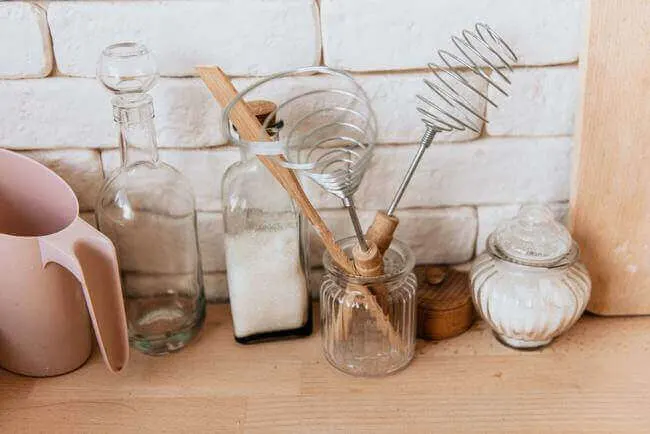
Every time you look at a pile of clutter, you get a negative thought, and that’s no coincidence. You can’t chill out in a messy home.
According to a psychological study at pnas.org, clutter and random objects hinder your ability to focus on basic tasks, leading to lower performance and greater stress.
For the sake of your mental health, you need to regularly organize your things.
You’ll find that when you declutter, you’ll have a lot more space in your home, and you won’t be burdened by items that you don’t use.
Without a mess hanging over your head, it’ll be a lot easier to focus on some much-needed relaxation.
5. Meaningful Communication.
When it comes to how we communicate, it will almost always play a huge role in how we feel — especially at home!
Over at betterhealth.vic.gov.au, they do a great job highlighting how poor communication practices can make you feel tense and miserable.
Silent treatments, shouting, and a habit of making accusations are not conducive to a harmonious environment at home.
Whether you’re chatting with your significant other or asking a roommate to help you with something, you must approach them diplomatically.
While your co-inhabitants may get on your nerves sometimes, that’s no excuse to go into attack mode. At the end of the day, you want to solve the problem, right?
You may be able to solve it with aggression and brute force, but clarity, sensitivity, and understanding are much more effective, and they breed much less resentment.
If you dedicate yourself to being a healthier communicator, then it’ll be easier to change your home’s communication culture so that everyone’s on board. When everyone is communicating well, you’ll notice that your home is a much calmer place.
If you dedicate yourself to being a healthier communicator, then it’ll be easier to change your home’s communication culture.
6. Take Care of Important Tasks.

According to behavioral professionals at psychologicalscience.org, procrastination isn’t just bad for your goals, but it’s also bad for your mental health.
Procrastinators are noted to have chronic stress due to the tasks that they continually put off. Even if you live in a perfect home, you can’t relax with an important task or deadline hanging over your head.
Procrastination is caused by a fear of failure, you can only succeed when you actually try.
Procrastination is caused by a fear of failure, so you just need to remember that no matter what you do, you can only succeed when you actually try. Without a bunch of tasks and deadlines haunting you, your mind will be at ease, and you can peacefully enjoy your time at home.
7. Adopt Some Plants.

A psychological study at ncbi.nlm.nih.gov found that exposure to houseplants can lower your heart rate and reduce stress, so you should probably head over to your local garden store to find some low-maintenance plants for your home.
This is one of the easiest ways to make your home a calmer place.
On top of the psychological benefits of plant ownership, plants also remove toxins from the air and provide much-needed oxygen, so having a few houseplants is good for your mind and body.
See Also:
Check out, 6 Bedroom Plants That’ll Help Your Bedroom Breathe Healthy, next!
Author: Everything Abode
Welcome to Everything Abode, your daily inspiration for every activity at home!
Our goal is to inspire you to live an elegant and chic lifestyle from the comfort of your home.
We’ll help you express yourself through authentic style, aesthetic beauty, and stylish home decor.
7 Brilliant Ways to Create a Relaxing Home
How to Create a Minimalist Kitchen to Save Space
12 Outdoor Garden Shelves for Plants to Make Any Garden Look Gorgeous
29 Unique Wood Pendant Light Fixtures You Can Buy Right Now
Ralph Lauren Christmas Décor Ideas That Feel Like Coming Home
Houseplants for the Bathroom: 14 Varieties That'll Love the Humidity
Subscribe to Get the Tools That Make My Blog Successful!

When you join my newsletter, I'm going to send you insider advice and tools that I use to grow my blog! I only save the BEST for my email list so don't wait!

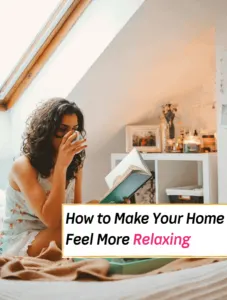
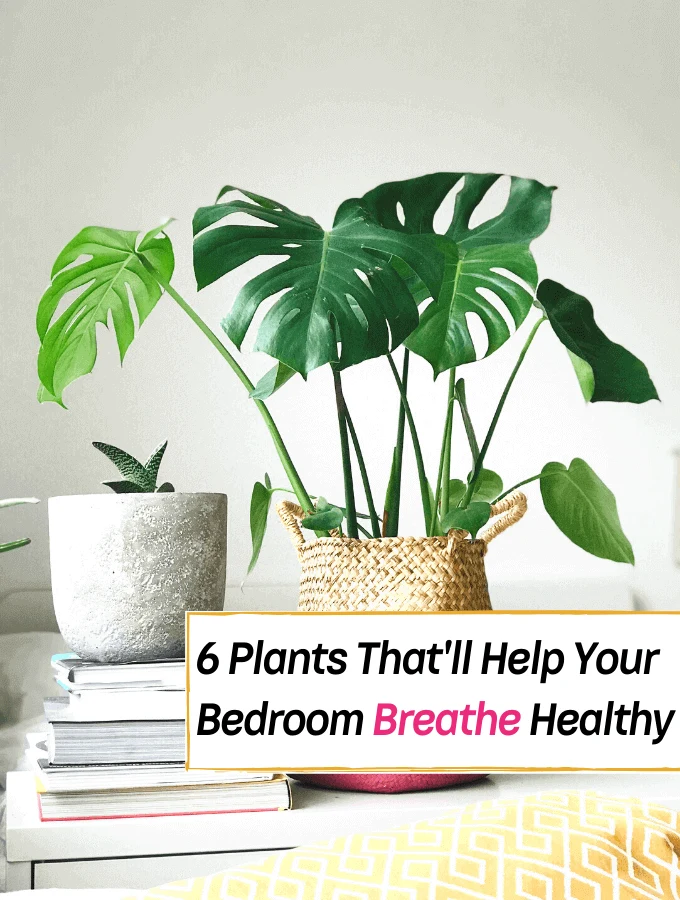
16 Personal Growth Tips to Live Life Fully! - Everything Abode
Monday 23rd of August 2021
[…] painting the walls a bright or uplifting color. Put up beautiful art pieces that will add some much-needed life into what may be an otherwise drab […]
TheGrowthReactor
Tuesday 25th of August 2020
Great post - i really enjoyed reading it.
Point number 5 really resonates
Jade
Thursday 24th of June 2021
This is so straight to the point and 100% accurate. Love it!